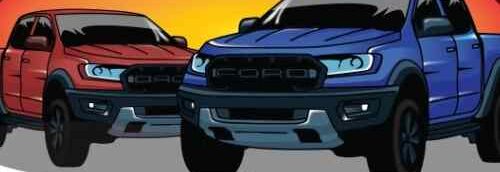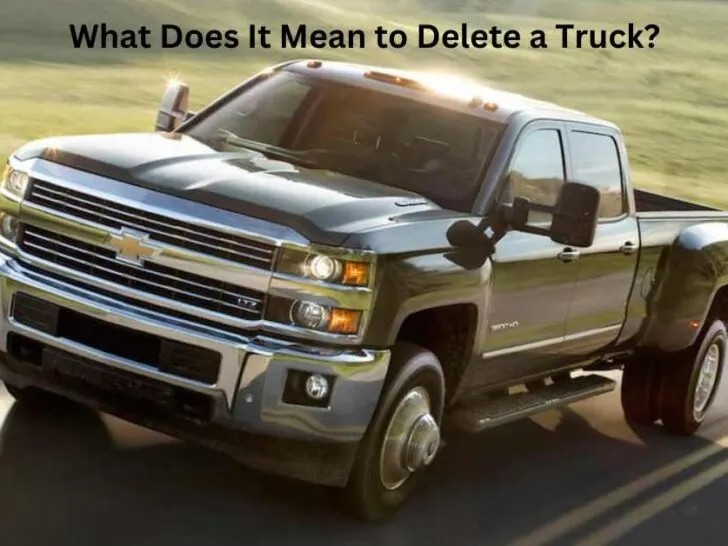The manufacturers of diesel trucks install different systems and equipment in the vehicle to help control the production of pollutants. They are essential for the working of the vehicle and protect the atmosphere from pollution. DPF, DEF, and EGR are such systems that help control air pollution due to diesel trucks. But drivers prefer removing them due to their poor fuel economy.
What Does It Mean to Delete a Truck? Deleting a truck means removing the diesel particulate filter, diesel engine fuel, and exhaust gas recirculation systems. It is beneficial in increasing the fuel economy and helps reduce the repairing cost. But it is illegal to tamper with a vehicle, and you have to pay a fine of more than $2500. Deleting a pickup increases air pollution due to the excess production of nitrogen oxide in the system.
Getting more horsepower from the engine is the ultimate goal of all vehicle drivers. They made many modifications to the system to achieve their goal.
Tampering the DPF to get a high MPH for towing the loads is one such example. But these modifications have their own risk and benefits. The benefits usually outweigh the risk, and truckers delete the systems to get these benefits.
What is deleting a truck?
Deleting a pickup means removing the diesel particle filter(DPF), diesel emission fluids (DEF), and exhaust gases regulating system. The drivers remove these systems due to many reasons.
These systems are accessories components to improve the working of the diesel engine. DPF is installed within the exhaust system of the truck.
It removes the particulate matter from the diesel. It stores the soot in a canister which contains a honeycomb-like structure to catch the particulate matter.
DEF is also the same as DPF, but it uses engine fluid instead of diesel. It also contains a honeycomb-like structure to catch the particulate matter from the engine fuel.
The EGR system is responsible for recirculating the harmful exhaust gases back to the combustion chamber. The gases mix with the air and fuel mixture to burn in the combustion chamber.
This system helps in reducing the production of nitrogen oxide. The gas vehicles also contain the EGR, DPF, and DEF systems installed in their exhaust systems. You can also delete these systems in the gas pickups to enhance horsepower and towing capacity.
What are the benefits of deleting a truck?
The DPF and DEF system plays an essential role in the better performance of the engine. But deleting these accessory systems is helpful for truck drivers in many ways.
Improve fuel economy
All these systems need the power to perform their function. The PDF system uses diesel fuel to burn the soot inside the canister. The burning of particulate matter burns a lot of oil in the system.
The soot also becomes stuck in the engine compartment and hinders the engine’s working. The DEF system also reduces the fuel economy and horsepower of the vehicle.
Diesel trucks are used for towing heavy loads from one place to another. Towing heavy loads requires a lot of horsepower. Deleting these systems can increase fuel efficiency by 30 to 40%.
Reduce repairing cost
DPF and DEF require proper maintenance and repair at regular intervals to keep them functional. Once damaged, they do not function properly and hinder the engine’s smooth running.
The repairing of both these systems is very high. Replacing a DPF costs about 4500 to $9000.Repairing and replacing a DEF costs about $2000 to $10000.
The DPF requires cleaning because the particles and soot accumulate in the engine and other systems.
The engine also requires more maintenance and care due to the recirculation of the exhaust gases. It puts a lot of burden on your budget. That’s why the buyer of the pickup opts for deleting them.
Is it legal to delete a truck?
Yes, it is illegal to delete a pickup. It is an offense according to the Federal government of the United States. You can not remove these systems without the permission of the Government. The DPF and DEF are essential to protect the environment from harmful gases and particles.
Removing these systems will expel all the exhaust gases in the surrounding area. The EPA is trying to enforce the rule throughout the whole country.
You have to pay a fine of thousands of dollars as a penalty. Deleting a DPF system is a fineable offense, and you have to pay $2500 to$7500 for deleting it.
The big companies have even paid a fine of millions of dollars for deleting these pollution control systems. In severe cases, you can even go to jail for deleting the pickup.
Deleting a vehicle also reduces its market value, and you have to sell it at lower prices. You can not buy a deleted pickup, as it is also an offense. A dealership can not sell a deleted truck unless it replaces the pollution control systems.
Does deleting a truck contribute to air pollution?
Yes, deleting a pickup is increasing air pollution in many ways. These pollution control systems restrict the flow of harmful gases like nitrogen oxide and particulate matter to the outside environment.
Tampering the diesel vehicle will allow them to expel the NO into the atmosphere. More than half a million trucks have removed their DPF and DEF systems.
All these vehicles will expel 570000 tons more nitrogen oxide to the outside. They produce nitrogen oxide equal to that produced by 8 million non-deleted trucks.
This gas is responsible for heart and respiratory disorders. These trucks also expel 5000 tons of particulate matter into the atmosphere. These foreign particles are responsible for all respiratory problems.
How much does it cost to delete a truck?
Deleting a pickup is a costly procedure. You also need the help of a professional to do it. It is not a DIY procedure to do at home.
The cost consists of the deleted labor cost and the shop supplies. It also depends upon the year and model of the vehicle.
It can cost from a few hundred dollars to more than $10000. A DPF delete can cost up to $5000. The DPF delete kits cost about $200 to $300.
The cost also goes higher depending upon the area of the city. Some professionals charge more money for the same services. The cost is also different for the new and used pollution control systems.
Related Articles:

